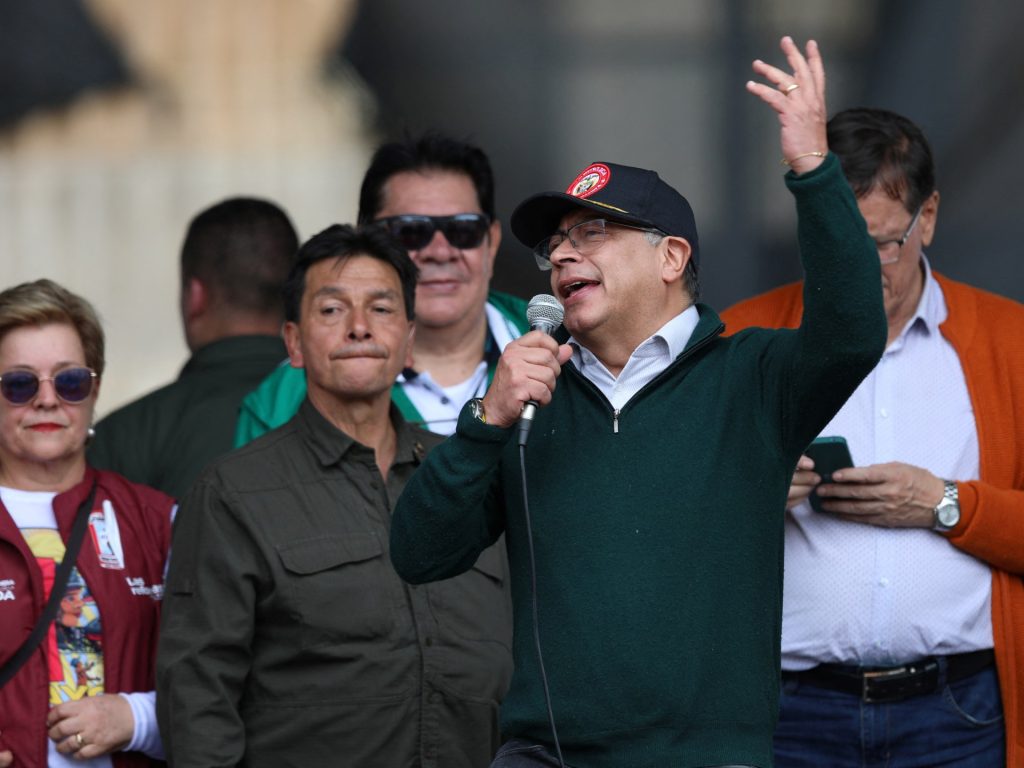Colombian President Gustavo Petro has taken a hardline stance against Israel, accusing the government of being genocidal in its actions in the Gaza Strip. In a speech on International Workers’ Day in Bogota, Petro announced plans to sever diplomatic ties with Israel over the ongoing conflict in Gaza. He has been a vocal critic of Israel since the conflict began, accusing Israeli officials of using language reminiscent of the Nazis and committing genocide. In response to Petro’s comments, Israel halted security exports to Colombia and tensions between the two countries have escalated.
Petro’s criticism of Israel intensified after Israeli forces opened fire on Palestinians seeking food aid in Gaza, an event he likened to the Holocaust. Colombia suspended weapons purchases from Israel in response to the violence in Gaza. Petro’s latest move to cut diplomatic ties with Israel comes amidst concerns of a potential ground offensive in Rafah, which would further exacerbate the humanitarian crisis in Gaza. The UN has warned of a risk of genocide against Palestinians in Gaza, with more than 34,500 Palestinians killed in Israel’s military offensive so far.
In an effort to protect vulnerable populations in Gaza, including women, children, persons with disabilities, and the elderly, Colombia has requested to join a case at the International Court of Justice accusing Israel of genocide. The ICJ ruled in January that Palestinians faced a plausible risk of genocide in Gaza and called on Israel to prevent any such acts. The UN Special Rapporteur Francesca Albanese also raised concerns about the possibility of genocide against Palestinians in Gaza, citing the scale of Israel’s assault and its impact on the population.
Israel has denied the accusations of genocide, calling them an “obscene inversion of reality.” The Israeli government has not yet commented on Colombia’s plans to cut diplomatic ties, but tensions between the two countries continue to rise. Petro’s decision to take a stance against Israel aligns with his progressive agenda and has garnered support from human rights advocates in Colombia and beyond. As the conflict in Gaza persists, the international community is closely monitoring the situation and calling for a peaceful resolution to end the violence and protect the vulnerable populations in the region.















